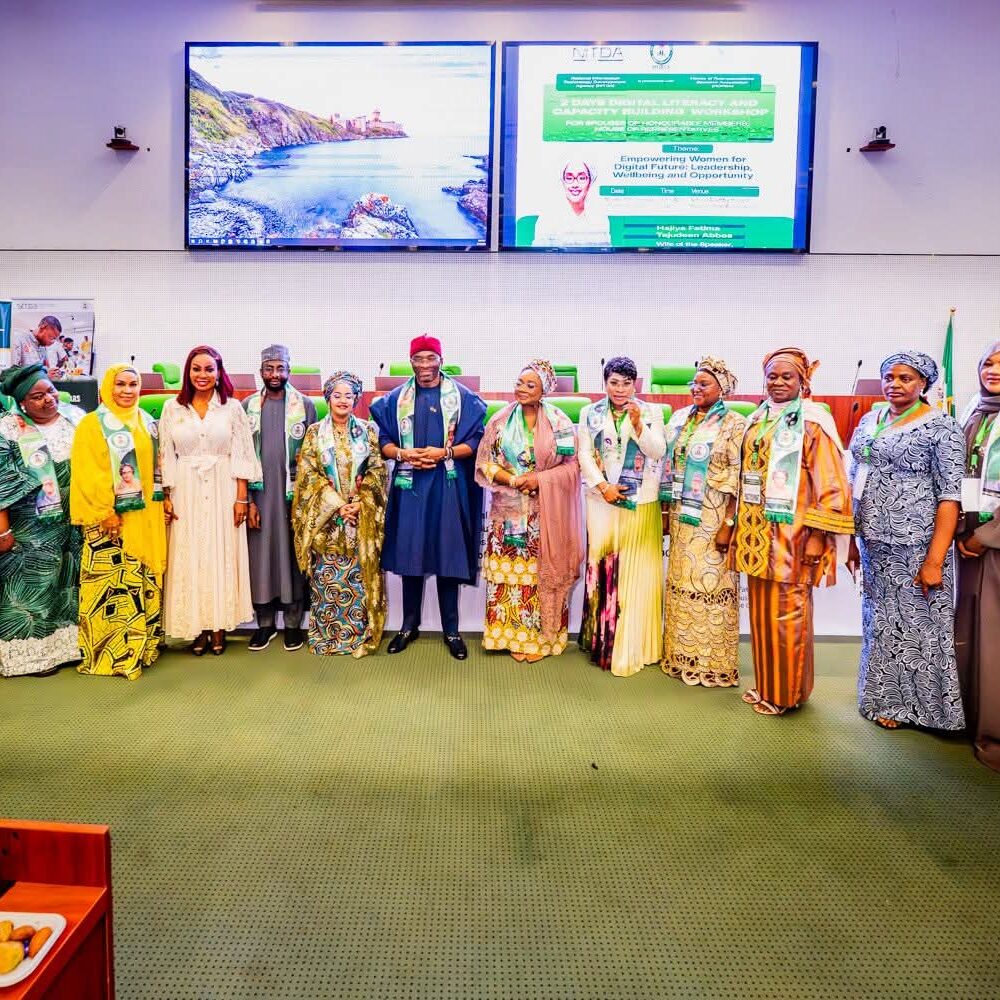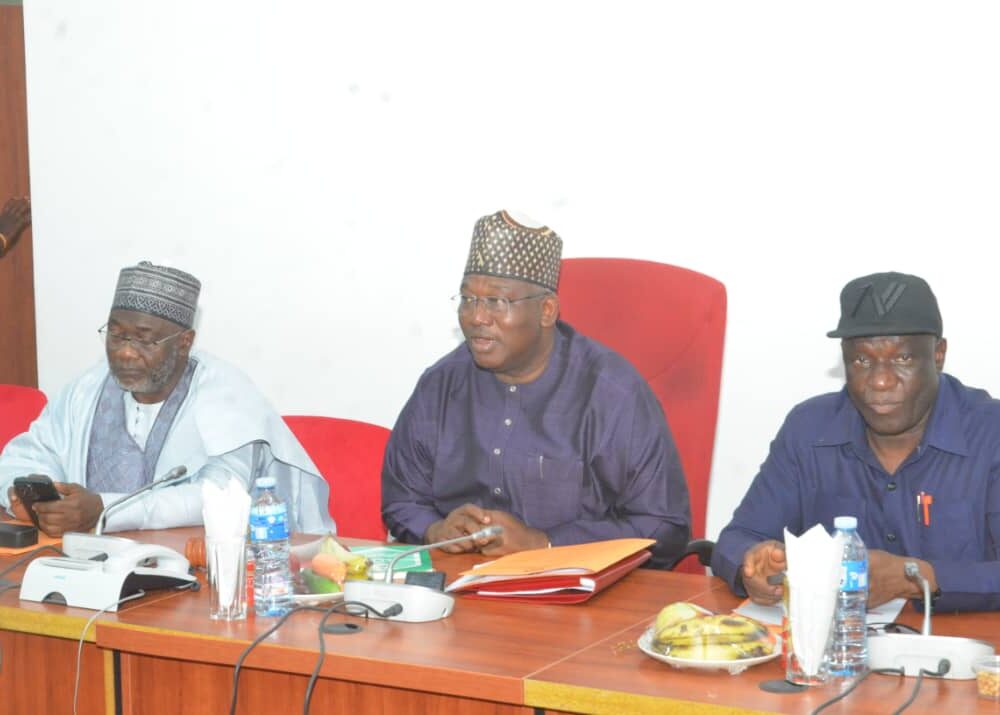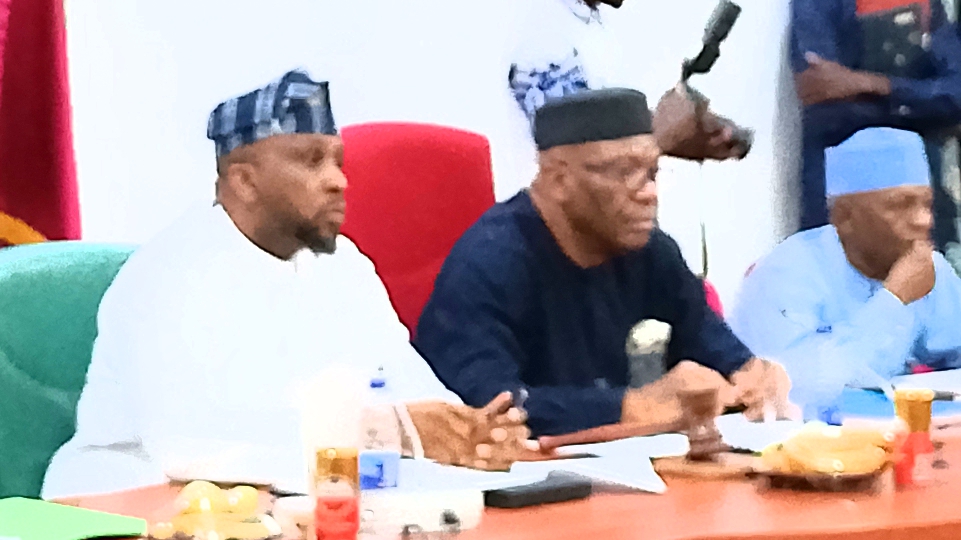Minority Leader of the House of Representatives, Rep Kingsley Chinda has said despite so many failures recorded on the last unbroken 25years of democracy, it still remained the best form of government as autocracy as an option is suicidal.
Chinda who is representing Obio/Akpor Federal Constituency of Rivers State, made this disclosure while chatting with journalists on Tuesday in Abuja, he stated that:
“Well I would have clearly been in that class of persons that would say, look there is nothing at all to talk about democracy in Nigeria.
“But I belong to the groups of persons that stood firmly against military rule in Nigeria. At least I’ve gone through detention while in school to say no to military rule.
“For anybody who thinks that democracy is not good, try autocracy. You will see the difference.
“And so I believe that the worst democratic government is better than the best autocratic government.
“We are seated here today talking to ourselves, speaking freely, because we have a democracy. There are days that you cannot sit with me in this room to hold this interview, even whilst I am the leader of opposition in the country.
“We need to hide in a conclave somewhere for us to discuss like this. And as we are discussing, we are watching our back.
“So democracy comes with its own advantages. And I can tell you that men generally seek democracy, so that we have had it for 25 years. It’s a thing of joy.
“But then the question is, 25 years of democracy, how well have we fared? Are we succeeding? Are we doing the right thing? Are we truly making maximal use of the democracy that we have? The answer is no. We are not faring very well.
“We are abusing the opportunity we have much more than using it to further our society. One clear example which I have always said, what is the primary purpose of government? Security of the citizens and their welfare, so, are we succeeding?
“If we talk about security in Nigeria today, it’s worse than it was 25 years back. 25 years back, you can travel from Port Harcourt to Sokoto, even at night.
” In school, I used to ply night bus from Port Harcourt to Lagos. Good morning Lagos, good night Port Harcourt. Finish the business of the day. At night, you go back to the bus station and then you’re back to Port Harcourt the following morning.
“But you can’t do that now, even in the afternoon today, to move from Port Harcourt to Abuja, because of the strike recently, I wanted to drive from Port Harcourt to Abuja. And everybody was screaming, why would you want to take such a risk?
“So, that primary purpose of government, providing security, we have not succeeded.
“Now you go to welfare, which is the second purpose of government, why we have all agreed that we elect a few persons to act in our stead, so that they will take care of our welfare.
“How well has government succeeded? The same answer is, government has failed. The welfare of Nigerians are not getting better. Our welfare 25 years back is better than what we have today.
“But there ought to have been improvements. 25 years back, public taps were flowing, public schools were doing well. We all attended public schools. Public health facilities were running.
“But today, Nigerians provide for themselves. You provide your security because you must get a security man in your house and you pay for it. You provide power for yourself. Most people are going for solar today because the public system has failed. You send your children to private schools because public schools have failed. That is, you also provide education for yourself.
“So, what do you actually owe the government and what does the government owe you? You owe obedience, compliance with laws and all that and that’s why you see most people, out of anger, will kick against the government of the day.
“So, whilst we celebrate democracy, yes, 25 years, but we must also take stock and remind ourselves that we are failing.
“And I would dare say that if we continue without taking a proper course, we are bound to disintegrate as a country because the signs of a failed state are there. Government is just struggling to hold back. At a point, the centre might no longer hold. So, we need to be careful as Nigerians.
On what opposition is doing to help rewrite the situation in Nigeria, Chinda said: “Very well. As opposition members of the parliament, we have taken some steps.
“Most recently, on the issue of security, you will recall after our meeting that we asked the government that in three months, which will expire in July, I think July 16th, that if there is no improvement in the area of security, that we might be compelled to take steps to call on Nigerians to begin to do things that the government might not be comfortable with.
“Now aside that, things like welfare, most recently, we talked about the cyber security issue and implementation of that law, which led to a lot of brouhaha in the society.
“We intervened quickly to say no. The Central Bank circular, which intended to impose fees on Nigerians, was not correct, and it should be withdrawn. Fortunately, the president reacted and responded to it and withdrew that circular.
“So we think that these are some of the roles that we should be playing to check some of the excesses of government and draw attention of Nigerians to this and also call on government to take steps to correct them in the interest of Nigerians.
“Well, like I said earlier, that through legislative intervention, we should strive towards accomplishing the main purpose of government.
“A major example is the Local Content Act that we have today is limited to the oil and gas sector. And because of that Local Content Act, you can agree with me that more Nigerians are becoming big players in the oil and gas sector. Knowledge is being developed.
“Yes, the general economy in the country is also hitting that sector. And so that’s why you see some of these oil, big oil giants, Shell, Elf, Mobil, and all that, talking about either downsizing or selling off their interest and all that.
“But who are those that are buying off those interests? Most of them are Nigerians. So this is the advantage of the Local Content Act in the oil and gas sector.
“And we felt that it would not be proper to limit it to that sector. It should also dovetail into all other aspects and facets of our economy, into construction, into medical, into ICT, and all that.
“So it will develop local capacity. It will give opportunity for our people to be big-time players in all these other fields. And then it will also give minimum requirements for local content in those areas.
“Now, an example, again, it’s the issues of unemployment. What it means is that for every locality where you go to establish these firms or these operations, those from that locality must produce at least the lower cadre of the staff of such firms. And there is provision of training in it.
“They are compelled by law to continue to do training for these persons and then also be prepared to hand over even the expatriates to the locals within a particular number of years.





